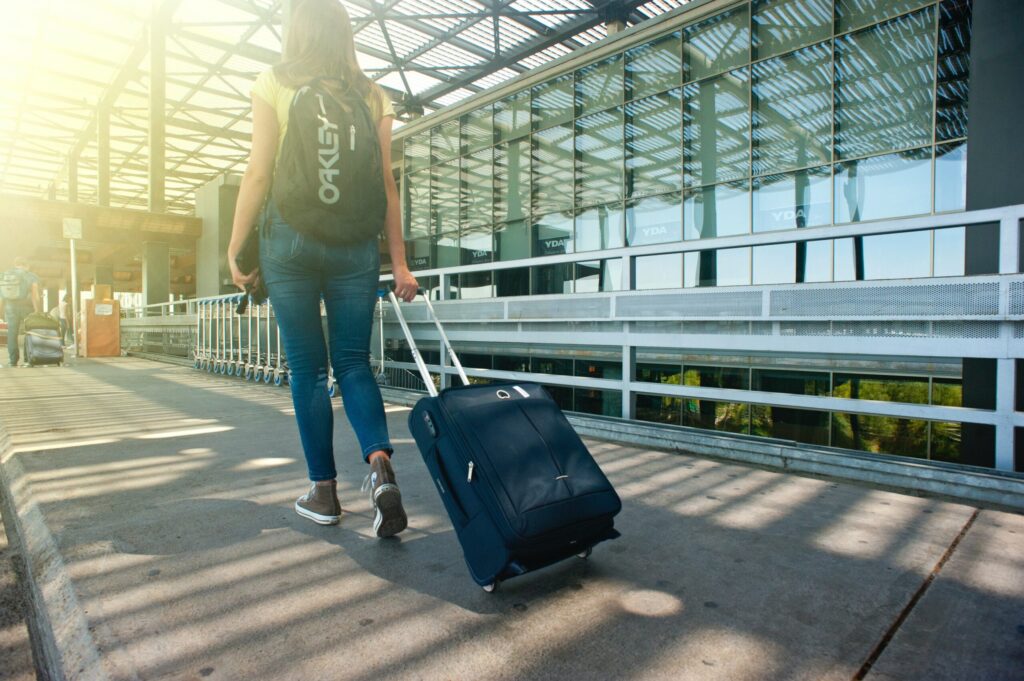Do you want to travel but nervous for what lies ahead? Don’t fret, you’re not alone. Fortunately, when you’re beginning out, a little information goes a long way. Here are a few helpful tips that we at Alliance Work & Travel always tell our first-time travellers.
Travelling to a new country. Meeting new people, and situations has the potential to open you up in ways you never imagined. You return a different person than the one who went; you grow as a person and rediscover yourself along the journey.
However, before deciding to work or teach abroad, take a working holiday or just a vacation into distant countries, consider the following suggestions to make your first trip a smooth journey from start to end!

1.Make Copies of Documents
When travelling, only bring what you need, such as your phone, a credit card, some currency, an ID, and a duplicate of your passport. Keep the copy secure and distinct from your original passport. Consider leaving a duplicate with an acquaintance or family member back home as well. When riding trains, buses, or other modes of transportation, it’s also essential to remain vigilant and keep your belongings near at hand. Extra cash, jewels, your real passport, and other essential papers should be kept in the motel safe. Keep these hidden in a safe container that you can see at all times. Put packages containing these things down or out of your line of sight.
2.Learn the Language
It is not necessary to be proficient in a foreign language in order to travel to another nation. However, learning a few phrases in the native tongue can enhance your travel experience. Some important phrases to learn are “hello, please, thank you, nice to meet you, excuse me, sorry,” and “can I take your portrait?” It can be frustrating not to be able to converse while traveling, but keep in mind that this is your issue, not theirs. Raising your volume will not make natives comprehend English. Try physical gestures, phone pictures, or even Google Translate!
3.Alert to your bank
It’s always a good idea to notify your bank of your trip plans and provide them with your travel dates because you don’t want to find yourself in a foreign country with no access to your bank account. This is significant because, unless your bank allows it, your ATM or debit card may not function in a foreign nation. You could find yourself in a difficult position if you run out of funds sooner than expected and your debit card refuses to function. So, to prevent any inconveniences during your journey, make sure to get these technical procedures sorted out well in preparation.
4.Take a Working Holiday
Working and living with natives may be the cheapest and coolest way to immerse yourself in a journey, allowing you to remain longer and have a unique cultural experience. Alliance Visas offers several volunteer and working holiday packages in China, Thailand, Canada, Australia, etc. Working and living with locals is one of the simplest and best way to submerge yourself in a trip, enabling you to stay longer and have a unique cultural experience.
5.Vaccinate
Some countries have strict travel rules and will not let you enter until you have been adequately vaccinated. The reasoning is simple: they want to avoid diseases from spreading from one nation to another. Even if the country’s travel rules do not require you to get inoculated, it is always a good idea to get vaccinated before flying to another country. Why chance spreading an infection or disease to another country when you can simply prevent it?
6.Travel Off-Season
When considering off-season travel, the best query to pose is, “What makes this time of year the off-season?” I assure you that peak periods are famous for a cause. The savings may or may not be worth coping with inclement weather or losing out on seasonal activities. However, it is worth contemplating.
7.Share Travel Itinerary with Close Friends and Family
Send a family member or acquaintance back home your trip schedule, hotel reservation information, and specifics of any planned activities. Also, let the hotel employees know where you’re going and when you anticipate returning when travelling alone.
Check with your smartphone carrier to determine what capabilities you’ll need at your journey location to remain linked with friends, family, or business, even if only rarely during your solitary travels. When you have Wi-Fi, you can also check in via email or social media.
8.Research Your Destination
Before you start packing your luggage and reserving flights, you should do some study on your location. This will help you better understand the culture, traditions, and norms of the place you are going and ensure that you are prepared for what you will encounter. You should look into the climate and weather, local rules and regulations, the cost of living and typical expenses, and any possible health or safety issues. This will assist you in properly planning and packing, as well as giving you an idea of what activities or sites you might want to see while you are there.
9.Get Travel Insurance
Travel insurance is intended to safeguard against dangers and financial losses that may occur while travelling. The dangers vary from small inconveniences like lost airline connections, last minute cancellations and delayed baggage to more severe issues like injuries or serious sickness. Travel insurance can be bought with travel agencies, holiday companies, banks, insurance companies and online comparison websites.
10.Prepare for Jet Lag
Recovering from a long-haul journey is difficult enough; throw in a time shift and you’re sure to be jet lagged. Each time zone shift can take up to a week to adapt to. So, if you’re travelling from Los Angeles to London, you should plan on spending several days adjusting your head and body to the new time zone.
Combat jet lag by getting plenty of rest before your journey and slightly adjusting your schedule (for example, remaining up an hour or two later) to attempt to prepare your body. Apply the same logic to mealtimes. Before, during, and after the journey, drink plenty of water.















